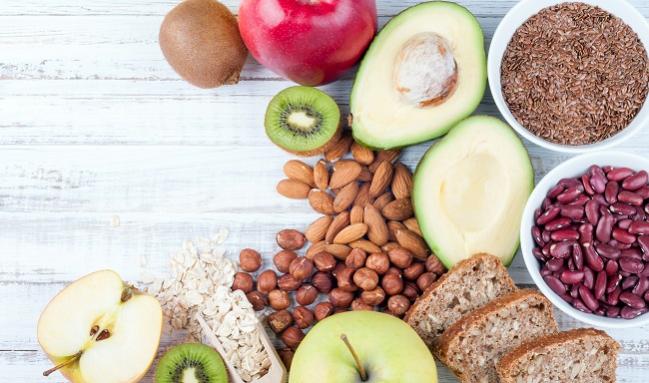When It Comes to Preventing CHD, Not All Plant-Based Diets Are Created Equal
Consuming fruits, grains, and vegetables improves cardiometabolic health, but avoiding meat is not the simple answer.

Those who follow a healthy plant-based diet, as opposed to eating one filled with juices, junk food, and other less healthy foods that are also derived from fruits and vegetables, are less likely to develop coronary heart disease, a new prospective cohort study suggests.
While this correlation isn’t surprising to medical experts, the study shows that not all vegan and vegetarian diets give patients an advantage over meat eaters when it comes to preventing coronary heart disease. These findings help distinguish “between plant foods that are higher quality and plant foods that are lower quality [and show] that you can lower your risk of heart disease, even if you don't completely eliminate animal foods from your diet,” lead author Ambika Satija, ScD (Harvard T.H. Chan School of Public Health, Boston, MA), told TCTMD.
Previous studies have considered plant-based diets to be vegetarian diets, which still allow for consumption of some animal foods. Other research on vegetarian diets allows participants to continue consuming refined grains and sugar-sweetened beverages.
The new investigation, published online July 17, 2017, in the Journal of the American College of Cardiology, considers the cardiometabolic effects of throwing animal foods and unhealthy vegetarian options into the mix so as to differentiate between healthy versus unhealthy plant-based foods.
“Medical and health professionals should guide patients to increase intake of healthy plant foods, such as whole grains, fruits and vegetables, and nuts and reduce intake of animal foods and less healthy foods such as [sugar-sweetened beverages] for CHD prevention,” Satija and colleagues say.
Satija pointed out that cardiologists, in particular, can take part in sharing this message by targeting patients who have a high risk of developing heart disease.
The Meaty Details
The researchers assessed 73,710 women from Nurses’ Health Study (NHS; 1984 to 2012), 92,329 women in NHS2 (1991 to 2013), as well as 43,259 men from the Health Professionals Follow-up Study (1986 to 2012). None of these participants had chronic disease at baseline. Participants received a follow-up questionnaire every 2 years on their health habits, lifestyle choices, and medical history, with an average response rate of approximately 90% each cycle.
Satija et al developed three different plant-based diet indices. The first, an overall plant-based diet index (PDI), included all foods in which fruits or vegetables were the base ingredient and reduced animal food intake. The second, hPDI, involved only “healthful” plant-based foods like whole grains, fruits/vegetables, nuts/legumes, oils, and tea/coffee. The third, uPDI, included less healthy, lower nutrient, or processed plant foods known to be associated with a higher risk of several diseases.
In all, there were 8,631 incident CHD cases, defined as nonfatal myocardial infarction and fatal CHD. Pooled multivariable analysis showed higher adherence to PDI was independently inversely linked with CHD risk (HR 0.92 for highest vs lowest extreme deciles; 95% CI 0.83-1.01; P for trend = 0.003). Plant-based diets that were more healthy showed an even greater link to lower risk when the highest and lowest deciles were compared (HR 0.75; 95% CI 0.68-0.83; P for trend < 0.001). On the other hand, unhealthful plant-based diets increased the risk of CHD events, with the event rate tracking progressively higher along with more unhealthful eating (HR 1.32; 95% CI 1.20-0.46; P for trend < 0.001).
Kim A. Williams, MD (Rush University Medical Center, Chicago, IL), who wrote an editorial accompanying the paper, pointed out to TCTMD that the researchers attempted to gather data from vegans, but the population size wasn’t large enough. This information, he noted, will better explain to researchers not only the “levels of plant-based nutrition based on how much plants there are, how much saturated fat and sugar, but [also] about how a real whole-food plant-based diet that’s relatively low in fat, relatively high in fiber, high in grain, unprocessed grain [can help] to decrease heart attack and stroke.”
Food for Thought
The idea of a healthful plant-based diet “means both a challenge and an opportunity for cardiology,” say Williams and Hena Patel, MD (Rush University Medical Center), in their editorial, pointing out that “plant-based” as a catchall term actual incorporates a wide range of different eating habits, some of which are considerably healthier than others. “Until recently, as a group, cardiologists have not delved deeply into nutrition, treating CVD’s downstream effects rather than obliterating its roots, leaving primary and secondary prevention opportunities on the table.
The current findings underscore the notion that adhering to a healthy plant-based diet would mean steering clear of refined products and saturated fats, and instead focusing on “whole grains as the main form of carbohydrate, unsaturated fats as the predominate form of dietary fat, an abundance of fruit and vegetables, and adequate n-3 fatty acids,” they conclude.
Going forward, Satija and her co-investigators say future studies could see if these findings can be replicated in “other racial/ethnic, occupational, and socioeconomic groups and explore the biological mechanisms involved in the potentially cardioprotective effects of [healthy plant-based diets] to identify personalized clinical interventions and therapies for CHD prevention.”
Ashley Lyles is the 2017 recipient of the Jason Kahn Fellowship in Medical Journalism. She is currently a graduate student…
Read Full BioSources
Satija A, Bhupathirajua SN, Spiegelman D, et al. Healthful and Unhealthful plant-based diets and the risk of coronary heart disease in U.S. adults. J Am Coll Cardiol. 2017;70:411-422.
Williams KA, Patel H. Healthy plant-based diet: what does it really mean? J Am Coll Cardiol. 2017;70:423-425.
Disclosures
- Satija and Williams report no relevant conflicts of interest.


Comments